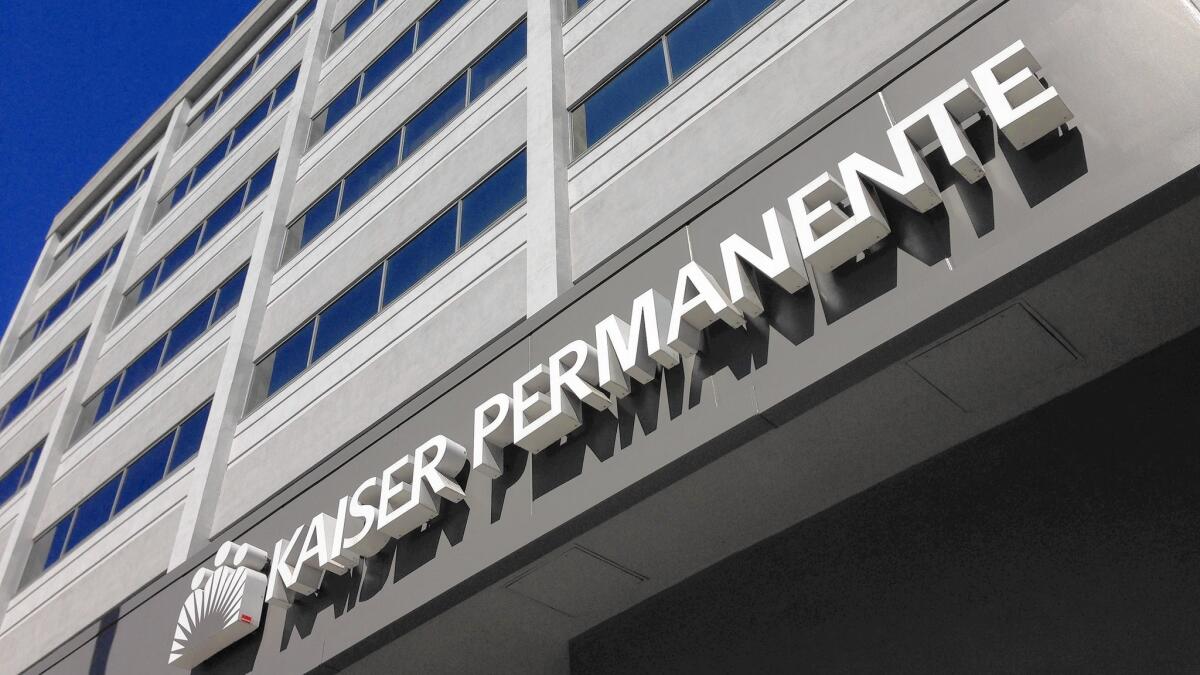Southland employers expect 4.8% hike in health-benefit costs

- Share via
Southern California employers expect their health-benefit costs to rise 4.8% next year as the economy recovers and mandates under the federal health law kick in, a new survey shows.
Nationwide, more people are expected to sign up for health benefits at work during the current open enrollment season as new federal rules begin taking effect in 2015 and penalties increase for being uninsured.
Insurance offered by employers is the primary source of health coverage for Americans, providing benefits to about 150 million workers and their families. Employees typically pick up 20% to 30% of the tab. In recent years, many employers have been cutting their financial exposure by foisting more costs onto workers.
In Southern California, health maintenance organizations remain the most popular health plan option and are often the cheapest. At large employers, 55% of covered employees in the Southland pick an HMO, compared with 16% nationally, according to the survey released Wednesday by benefits consultant Mercer.
The average worker at a large firm in Southern California pays $95 a month for employee-only HMO coverage. A preferred-provider organization, or PPO, plan costs $145 per month.
The overall cost increase predicted for the Southland is slightly above the 4.6% figure among employers nationwide. Those numbers reflect employer changes, like higher deductibles, to reduce cost.
The increases for 2015 are below the 7% average rate of growth during the past 15 years, Mercer said. But the rate of growth had dipped to 2% in 2013, part of a historic slowdown in U.S. medical spending.
Many researchers attributed that to consumers spending less on healthcare in the aftermath of the financial crisis.
Now many employers face the added expense of covering more workers.
“Growth in enrollment is truly the wild card for employer costs next year,” said Clay Levister, a Mercer consultant in Los Angeles. “That will increase the pressure to find new ways to manage cost.”
Large employers must extend coverage to most of their full-time employees under the Affordable Care Act. The requirements are being phased in next year based on employer size and will apply to more businesses in 2016.
Another motivation for workers enrolling is that the fines for staying uninsured jump to $325 per adult or 2% of modified adjusted gross income, whichever is greater.
“Because of the employer mandate, we are seeing quite a few employers offering health insurance coverage for the very first time or expanding to more of their workforce,” said Peter Andrade, a senior vice president at Kaiser Permanente, which covers 7.3 million Californians.
He said the HMO’s rate hikes for employers are running slightly below the 5% trend nationally and in California.
The Mercer survey found the average cost of health benefits, employer and employee portion combined, was $11,212 in Los Angeles this year.
A number of factors contribute to rising medical costs. Insurers and health-policy experts cite the growth of expensive specialty drugs, the negotiating clout of big hospital systems, an aging population and the high rate of chronic disease.
To help hold the line on costs, some employers are making it harder to sign up the family. Companies are imposing new rules for spouses and children so they don’t become “dependent magnets,” according to Mercer. Nationally, 27% of employers with 20,000 or more employees levy a surcharge for insuring spouses.
When workers get sick, they can expect to pay more out of their own pocket. Large employers raised deductibles on PPO plans about 15%.
Mercer’s national survey included responses from 2,569 employers.
Defying many predictions, the survey found declining interest among employers in canceling their health plans and sending workers to government-run exchanges for Obamacare coverage.
Only 16% of small businesses, among the most likely to favor that option, said they are likely to drop health benefits within the next five years. That’s down from 23% last year.
Bruce Jugan, an insurance agent in Montebello and president of Benefitscafe.com, said many small businesses in California are taking advantage of a state law allowing older plans that are noncompliant with the health law to be renewed one more year. He said rate increases on those renewals range from a few percentage points to nearly 20%.
“Small businesses can kick the can down the road,” Jugan said, “and see what next year holds.”
Twitter: @chadterhune
More to Read
Inside the business of entertainment
The Wide Shot brings you news, analysis and insights on everything from streaming wars to production — and what it all means for the future.
You may occasionally receive promotional content from the Los Angeles Times.











